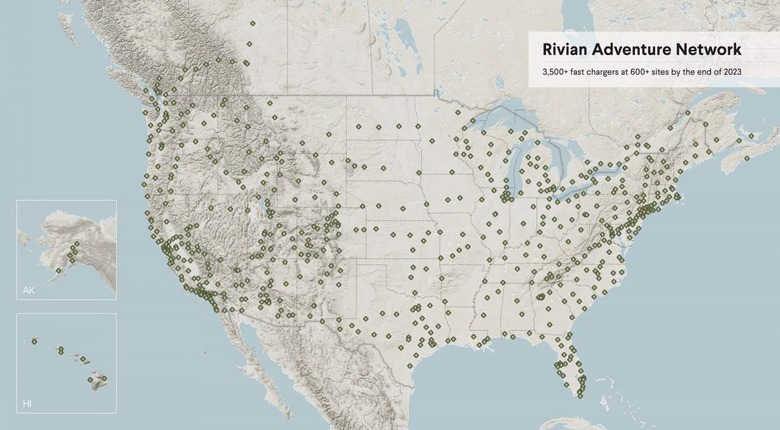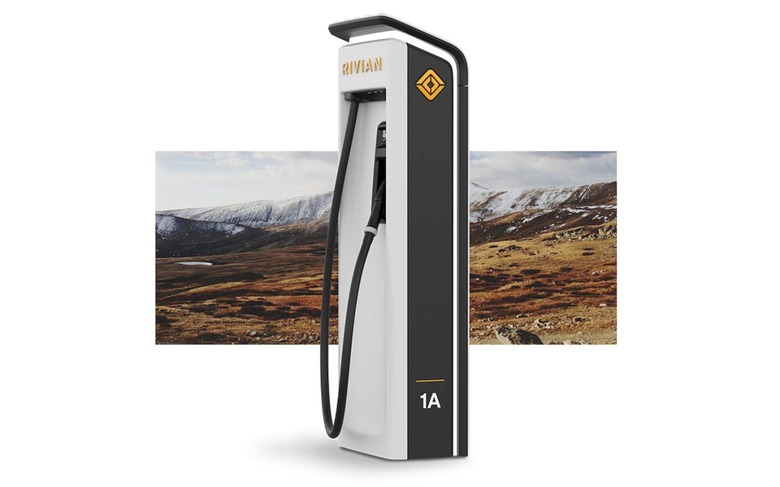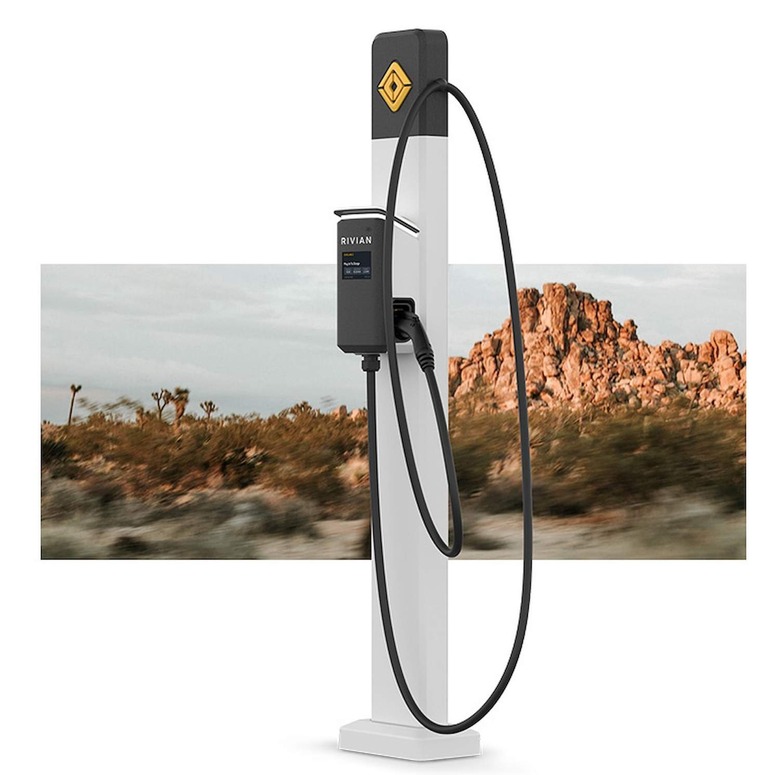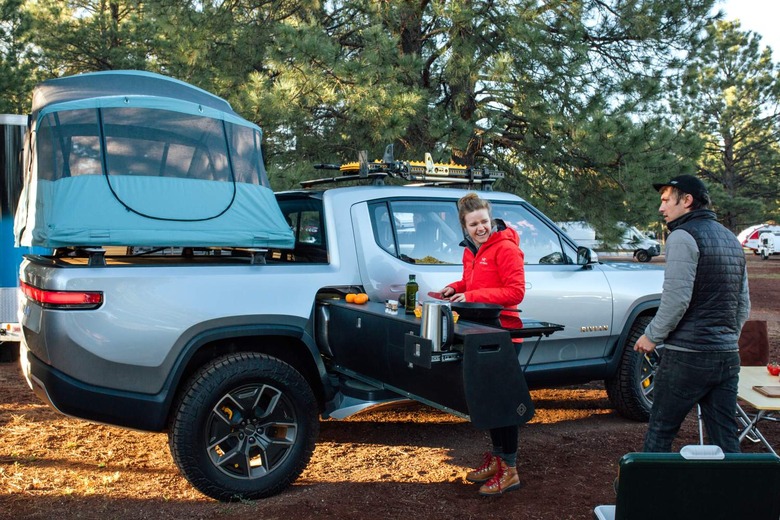Rivian Adventure Network Detailed: Fast, Exclusive EV Chargers Take Supercharger Strategy
Rivian is spilling details on its nationwide DC fast charger deployment, with the Rivian Adventure Network taking inspiration from Tesla's Superchargers, with a twist. Teased last year by execs at the automaker, the network will be exclusive to Rivian owners, and consist of chargers both on highways and main roads, but also in locations off the beaten path.
For example, though there'll be locations along the highways between Los Angeles and San Francisco – a common route for Californians – Rivian will also extend its network out to leisure spots. That could mean getting from LA to Tahoe, for instance, or making the run from Manhattan to the Adirondacks.

"I-70 to The Rockies. Michigan's UP via I-75," Rivian suggests. "California's Hwy 395. The entire Blue Ridge Parkway from Shenandoah National Park down to Great Smoky Mountains National Park. All these routes and more will begin opening this year."
By the end of 2023, Rivian says, there should be more than 3,500 DC fast chargers spread across over 600 sites. Each location will have multiple chargers, and they'll all be powered by 100-percent renewable energy. That will prioritize wind and solar, the automaker promises.

They'll be capable of 200 kW charging to begin with, with 300 kW+ on the roadmap. R1T and R1S owners should figure on up to 140 miles of range for 20 minutes plugged in, the company says. Only Rivian owners will be able to use them, too, with plug-and-charge to simplify the process.
That's not to say they'll be free, necessarily. Rivian says "details on pricing and associated programs" are coming soon.
Meanwhile, Rivian is also installing what it's calling Rivian Waypoints – effectively the equivalent of Tesla Destination Chargers – which will offer Level 2 power. Unlike the Rivian Adventure Network, these chargers will be open to the public just as long as their EVs have a J1772 connector, though Rivian owners will get the same automatic charging process as on the DC fast chargers.

There'll be less power, of course, with the expectation being 11.5 kW: that means up to 25 miles of range per hour plugged in. Over 10,000 Rivian Waypoints are planned in the US and Canada by the end of 2023; to begin with, the company intends to install two of the chargers in each of the 42 Colorado State Parks, with that process kicking off in July 2021.
Of course, Rivian drivers will be able to access other public charging networks. The Rivian infotainment system and app will show locations, and in some cases charger availability at those locations along with maximum charge rate. The standard portable charger included with the R1S and R1T, meanwhile, will support both 120V and 240V outlets; with the latter, up to 16 miles-worth of charge is likely per hour plugged in, Rivian says.
Infrastructure for charging while on the road has been a headache for most automakers looking to launch EVs, Tesla aside. Although the research shows that most drivers of electric vehicles do the majority of their charging at home, overnight, the reality is that range anxiety and the potential to do road-trips is a significant consideration for people considering making the jump to a fully-electric model.

At the same time, EV adoption in urban areas faces the challenge of would-be owners simply not having a dedicated place to park and charge. Whether that's down to reliance on street parking with no charger or outlet nearby, or a shared charging space intended to be used by multiple residents of an apartment building or similar, the fact is that cities as they currently stand simply aren't really set up for EVs being parked and charged for extended periods.
It'll take a while for Rivian to get anywhere close to the number of charging locations that Tesla current operates. Nonetheless, it's a sign of the automaker's commitment to coaxing out new EV owners, and not just following most of its rivals in partnering with third-party charger networks and hoping for the best. That's proved to typically be an underwhelming experience, with drivers left uncertain as to what sort of charge awaits them at that point on the map.
Deliveries of the R1T pickup are expected to begin later in 2021.
